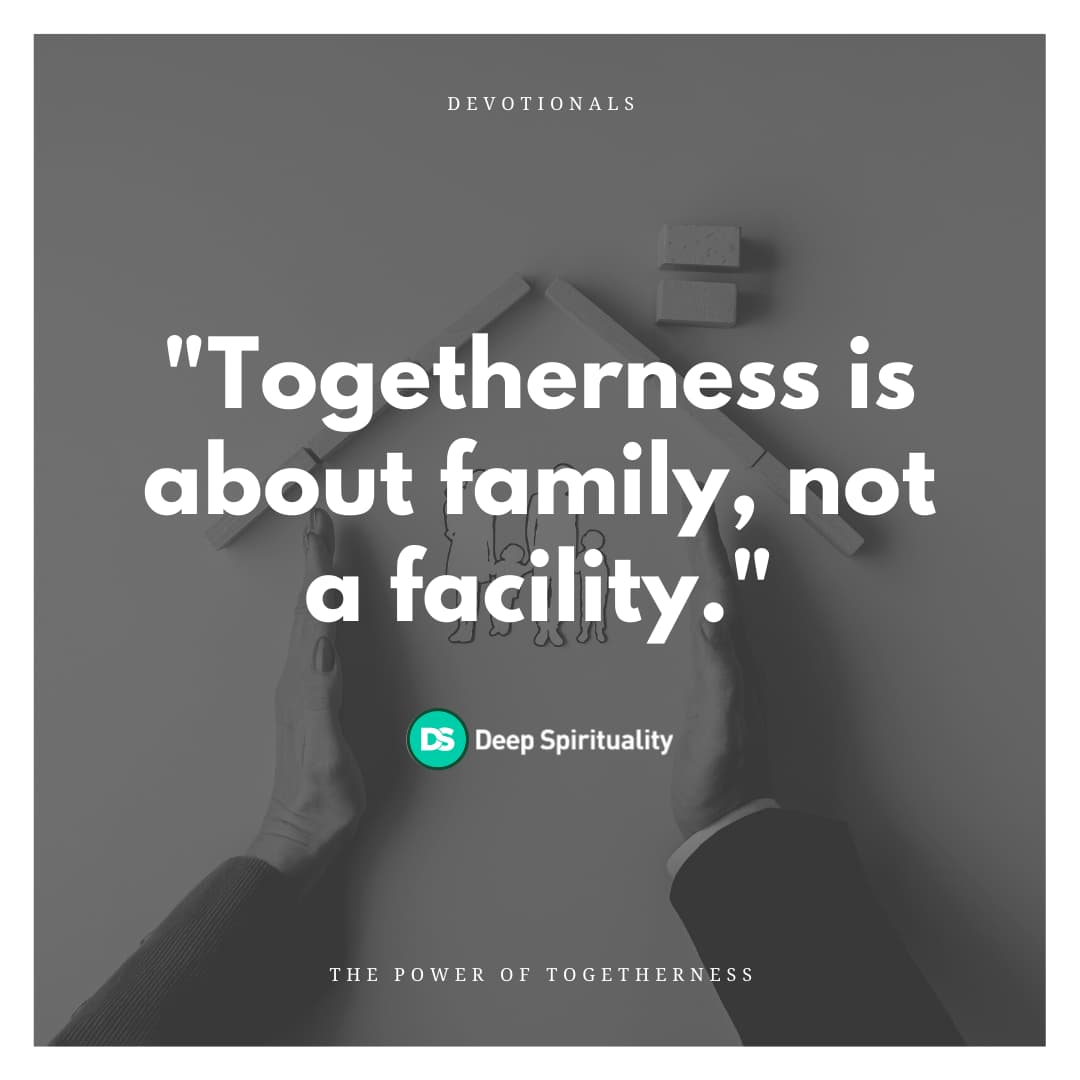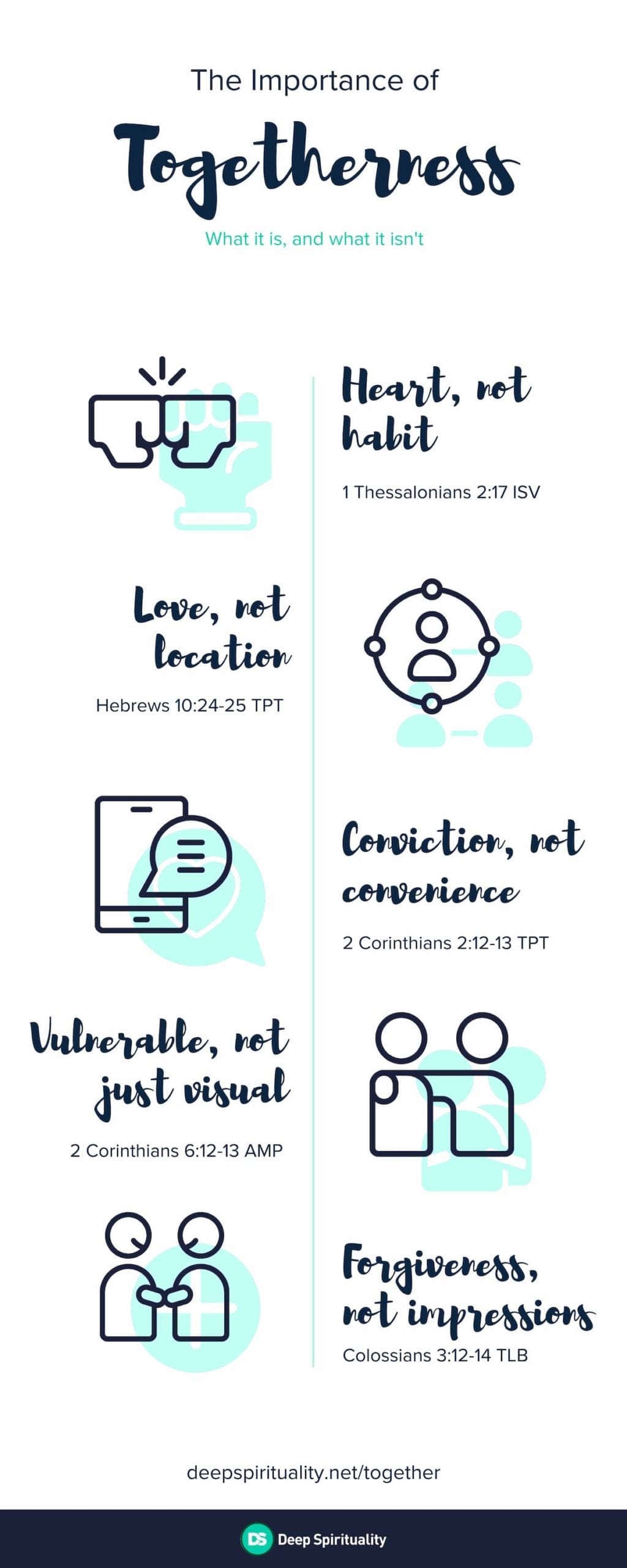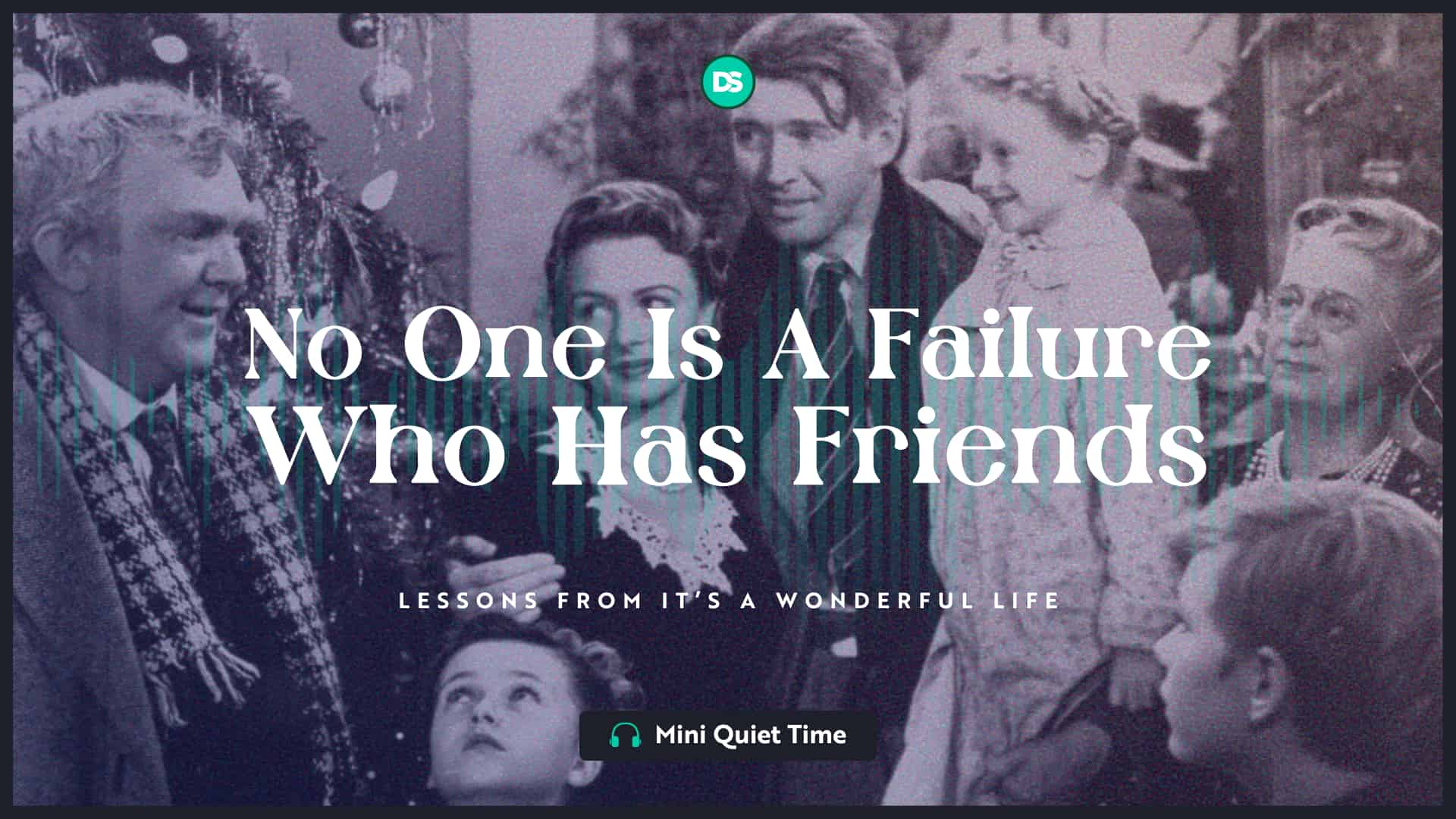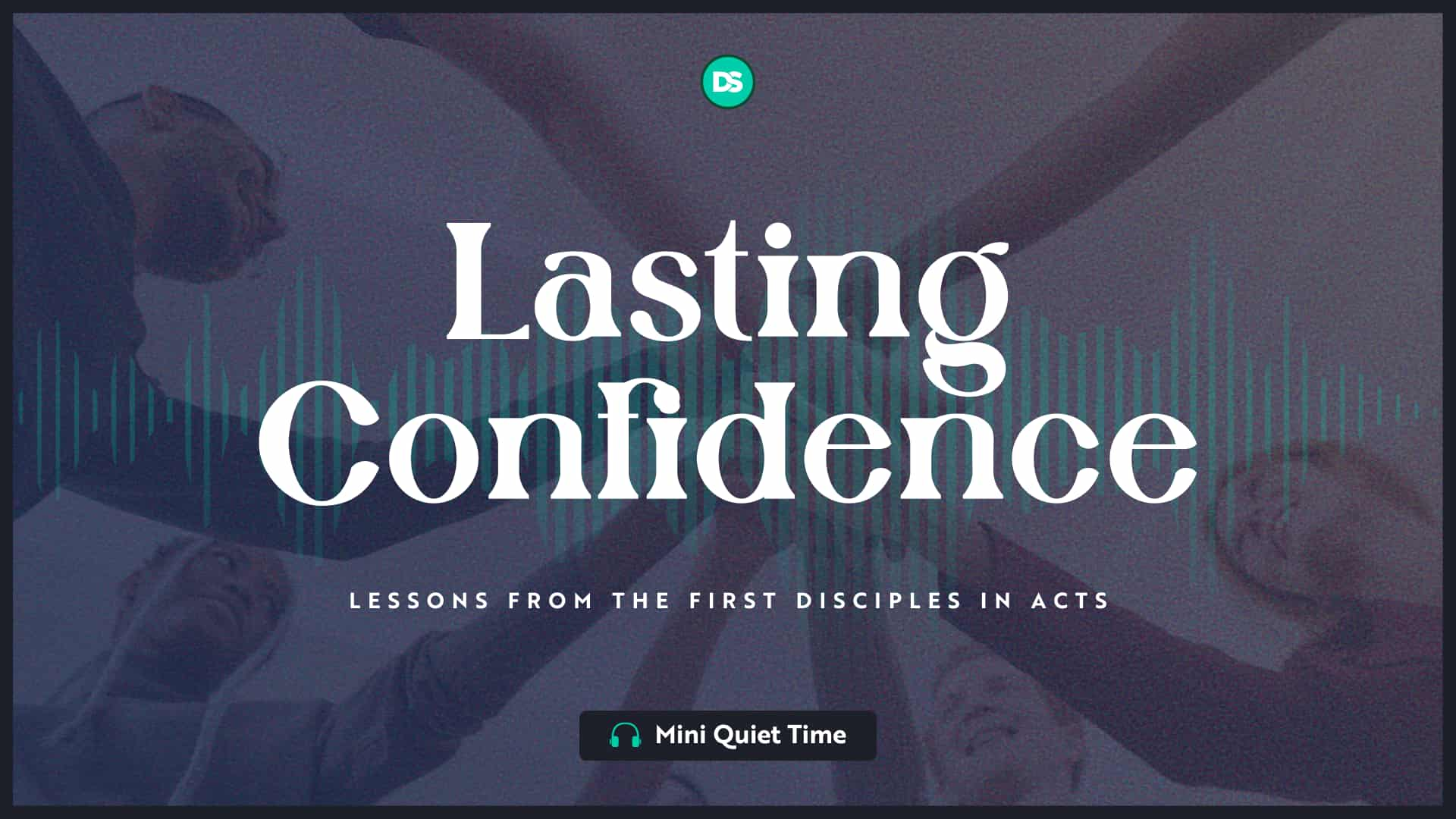This post was written in the midst of our world experiencing the COVID-19 pandemic. Though it discusses topics specific to this time, its insights and scriptures can be appreciated at any time.
There was an intense sense of togetherness among all who believed.
Acts 2:44 Voice
Growing up, my dad would have our family spend many winters and summers together – going skiing, camping, visiting beaches and amusement parks, and taking the occasional trips to Las Vegas or Palm Springs.
We’d be together for hours on the road packed up in our forest green Mercury station wagon, (reminiscent of the Griswold family from National Lampoon’s Vacation.)
Although we were often together, the reality was each of us were often in our own worlds emotionally and mentally. We were active as a family, yet apart.
Upon arriving at our various destinations, each of us had our own individual interests, pursuits, or plans while on the trip – only to come back together for dinner at day’s end.
Years later, after having a family of my own, I realized that in my own selfishness and pride, I didn’t appreciate or learn from those shared experiences the valuable opportunities to be together with my family. My dad was trying to teach us all along that only together, we are better.
Togetherness is about family, not a facility. In the wake of the coronavirus pandemic, many throughout the world are limited to sheltering in place.
For the time being, we are no longer able to meet together at our usual campuses, workplaces, church services, facility venues, homes, or restaurants to make connections.

Although we may be apart, we do not have to be alone. Togetherness is a choice.
The Scriptures illustrate how passionate God is about togetherness – about breaking down any “walls of hostility” or separation between us to the point of sacrificing and going to great lengths to bring people together into a relationship with him.
14 For Christ himself has brought peace to us. He united Jews and Gentiles into one people when, in his own body on the cross, he broke down the wall of hostility that separated us.
16 Together as one body, Christ reconciled both groups to God by means of his death on the cross, and our hostility toward each other was put to death.
Ephesians 2:14, 16 NLT
The New Testament Christians were compelled by God’s love and desire to be with them. They understood that they were better together – deeply connected through shared conviction, passion for God’s purpose, and a deep love for each other that changed lives and the world around them.
There was an intense sense of togetherness among all who believed.
Acts 2:44 Voice
42 They spent their time learning the apostles’ teaching, sharing, breaking bread, and praying together. 46 The believers met together in the Temple every day. They ate together in their homes, happy to share their food with joyful hearts.
47 They praised God and were liked by all the people. Every day the Lord added those who were being saved to the group of believers.
Acts 2:42, 46-47 NCV
Togetherness is essential for our faith to grow and relationships to thrive. By examining the Scriptures, we can learn to build not only our faith but also the faith of others despite being physically apart.
We can still deepen our relationships and have the spiritual impact today that the first century Christians had on the world, by redefining and rethinking what togetherness truly is. This Bible study on togetherness outlines five things we all need to understand about the need to stay connected.

Togetherness is about heart, not habit
Brothers, although we have been separated from you for a little while—in person but not in heart—we eagerly desire to see you again face to face.
1 Thessalonians 2:17 ISV
This scripture challenged me to see how togetherness is more about my heart condition than it is about habitual contact. While sheltering in place there are those with whom I’ve remained close and those I’ve become distant from. This has revealed much about my heart in relationships.
There are those who I frequently desire to see again face to face and those who I’ve not thought much about. The latter exposes how I relied on habitual weekly routines and shallow scheduled encounters to stay in contact, not a heart to deeply care for them outside of those moments. Praying for these people has changed my heart and desire for these relationships and has led to deeper conversations than I would have had prior.
Sheltering in place can also reveal our desire to be isolated while others desire to be face-to-face. We can keep our hearts close and connected through praying for each other regularly.
We can also take the initiative to spend time together in person with social distancing in social bubble groups, to enjoy a night out with friends at a drive-in movie, or to meet outdoors. The heart of the matter comes down to whether our hearts truly love and desire to be with each other personally, or to prefer isolation.
Pause and reflect
- Do you desire being together and close in relationships regardless of physical circumstances?
- How will you spiritually change your heart and desire for relationships through praying for others?
- What initiative will you take to inspire togetherness among your friends and family?
Togetherness is about love, not location
24 Discover creative ways to encourage others and to motivate them toward acts of compassion, doing beautiful works as expressions of love. 25 This is not the time to pull away and neglect meeting together, as some have formed the habit of doing because we need each other! In fact, we should come together even more frequently, eager to encourage and urge each other onward as we anticipate that day dawning.
Hebrews 10:24-25 TPT
Togetherness is built on love. Today, numerous technologies and social media platforms have made it possible for us to connect with anyone at any given time (text, Zoom, Facetime, Facebook, Twitter, Instagram, Snapchat, etc).
Prior to the coronavirus, I interacted with people at various locations – the workplace, church service, a meeting, or a coffee shop I’d frequent. I thought I was really connected to relationships. Then, when shelter-in-place (SIP) took effect, I was no longer able to see those same friends and acquaintances in those places.
The subsequent weeks following SIP revealed a sobering truth: I relied on common locations to keep me in relationships with them, rather than having deep love that compelled me to pursue relationships.
The Scripture above has inspired me to stay in contact and help friends “discover creative ways” to encourage, motivate and inspire them to grow in compassion and love.
In the midst of the situation we’re in, I’ve been finding new ways to connect and enjoy relationships:
- Engaging with friends on social media
- Posting pictures of fun memories together
- Calling friends to talk in person so we can share how our lives and families are doing
- Joining Zoom talks and community initiatives online together to share ideas of how we can make more impact in the special needs community.
We’re also getting to know our neighbors better and enjoying learning more about their lives and interests since we have all been sheltering-in-place. And my kids love interacting and talking with friends while gaming together, having Netflix movie watch parties online together, and going out for outdoor hikes while social distancing.
Friends have even shared about hosting virtual Book clubs, doing cooking night competitions on Zoom, or serving those in need in the community by volunteering at a local food bank or dropping off essential goods.
Finally, it’s been an opportune and encouraging time to reconnect with old friends, past roommates, or co-workers we’ve known and weren’t in much contact with prior to sheltering-in-place. Recent studies, in fact, have found that reaching out “to an old friend is a mood booster” and “enhances one’s well-being”.

Pause and reflect
- What has SIP taught you about your heart and desire for togetherness?
- Are you allowing circumstances to pull you away from relationships?
- How are you discovering new ways to engage in relationships and inspire others?
Togetherness is about conviction, not convenience
12 When I arrived at Troas, bringing the wonderful news of Christ, the Lord opened a great door of opportunity to minister there. 13 Still, I had no peace of mind, because I couldn’t find my dear brother Titus anywhere. So after saying goodbye to the believers, I set out for Macedonia to look for him.
2 Corinthians 2:12-13 TPT
Paul encountered a “great door of opportunity” to further his spiritual efforts in Troas. However, his conviction about how much relationships mattered to him was revealed when he couldn’t find one of his closest friends Titus to pursue and experience this opportunity with him together.
Rather than conveniently move forward without Titus to take this exceptional opportunity, Paul’s conviction to prioritize togetherness led him to pursue Titus while leaving the opportunity behind.
I can only imagine how inconvenient this may have been for him. Yet we learn from the rest of Paul’s life example in 2 Corinthians how God moved powerfully through Paul and his relationships to change the lives of many.
Pause and reflect
- Do you prioritize building spiritual relationships above pursuing personal interests?
- In your relationships, do you take the initiative to pursue building them or wait for others to make relationships convenient for your life?
- Who has God put on your heart and in your life to serve and sacrifice for, to build a deeper, spiritual relationship with?
Togetherness is about vulnerability, not just visual presence
12 There is no limit to our affection for you, but you are limited in your own affection [for us]. 13 Now in the same way as a fair exchange [for our love toward you]—I am speaking as [I would] to children—open wide [your hearts] to us also.
2 Corinthians 6:12-13 AMP
More than just seeing each other on Zoom, or being present, are we taking the initiative to open wide our hearts with vulnerability? Some are on Zoom frequently for school, work, and even church services or Bible studies. However, just because we are visually present or virtually logged in, it doesn’t mean our hearts are engaged together.
Recently I spoke with some friends who were “visually present” on a midweek connection over Zoom, but they chose to keep their video off, leaving only a blank screen showing their names.
Needless to say, trying to connect and have a meaningful interaction together was challenging. Yet when asked about this, they rationalized how they’d been onscreen all day for work or wanted to multitask while at home during this time.
“Although spending time together does indeed create togetherness, it’s vulnerability that cements our connection with each other.”
The Power of Togetherness
Regardless of their reason or rationalization, it became clear that vulnerability and their desire to be spiritually engaged were not priorities. They were virtually present online but not available face-to-face. Their hearts were preoccupied rather than vulnerable. Fortunately, they learned from this and decided to change.
Vulnerability is essential to build togetherness – the willingness to be completely unguarded, influenced, raw, and risking hurt. Although spending time together does indeed create togetherness, it’s vulnerability that cements our connection with each other.
Staying vulnerable is a risk we have to take if we want to experience connection.
Brene Brown, American Author and Professor
Pause and reflect
- What excuse or rationalization is keeping you from being vulnerable in relationships?
- Who can you take the initiative with to be vulnerable and be spiritually influenced?
Togetherness is about forgiveness, not impressions
12 Since you have been chosen by God who has given you this new kind of life, and because of his deep love and concern for you, you should practice tenderhearted mercy and kindness to others. Don’t worry about making a good impression on them, but be ready to suffer quietly and patiently.
13 Be gentle and ready to forgive; never hold grudges. Remember, the Lord forgave you, so you must forgive others. 14 Most of all, let love guide your life, for then the whole church will stay together in perfect harmony.
Colossians 3:12-14 TLB
God’s plan to bring people together was through forgiveness. Without it, we remain apart. There are times where we may be physically present together, giving the impression that we are in “perfect harmony,” yet completely distanced from each other due to a refusal to forgive.
We must move beyond trying to keep the impression that “we’re all good” on the outside and dive deeper into what may not be good that’s keeping us disconnected from God and in relationships. During these times, there is no greater opportunity than to practice forgiveness — starting with seeing our own need for it from God and others.
A recent Today article made a compelling point on how forgiveness is vital to bring us together in relationships:
Forgiveness is a wonderful gift,” [Dr. Mary] Fristad said. “Maybe it is time to let go of the hurt and fear. Maybe it is time to let go of the (negative) and go back to the 95% of the relationship that was positive. Letting go of anger and moving on with forgiveness is a very freeing experience.
Meghan Holohan, today.com
Pause and reflect
- Who do you think God wants you to reconnect with whom you’ve not been in contact with recently?
- Which relationship do you need to reconcile? With whom do you need to practice forgiveness?
Togetherness ultimately moves God
What happens when we come together? God moves in and through our lives to change the world in three key ways.
1. Our prayers become empowered
19 Again I tell you, if two of you on earth agree (harmonize together, make a symphony together) about whatever [anything and everything] they may ask, it will come to pass and be done for them by My Father in heaven.
Matthew 18:19 AMPC
Just as vocalists harmonizing together moves us emotionally, praying together in unity moves God and unleashes his power in our lives.
2. Our resilience grows stronger
9 Two people are better than one, because they get more done by working together. 10 If one falls down, the other can help him up. But it is bad for the person who is alone and falls, because no one is there to help.
11 If two lie down together, they will be warm, but a person alone will not be warm. 12 An enemy might defeat one person, but two people together can defend themselves; a rope that is woven of three strings is hard to break.
Ecclesiastes 4:9-12
The power of two working together can overcome far more than just one alone.
3. Our community and world changes
25 Now since we have chosen to walk with the Spirit, let’s keep each step in perfect sync with God’s Spirit. 26 This will happen when we set aside our self-interests and work together to create true community instead of a culture consumed by provocation, pride, and envy.
Galatians 5:25-26 Voice
When we set aside self-interests, envy, and pride, working together in step with each other, we then create the best form of community. This is how the world changes through the power of togetherness in the Bible!
Explore more:
Ray Kim is a Southern California native who made the Bay Area his home after graduating from the University of California, Berkeley. He is passionate about community service, and is spearheading such efforts as the E-Hoops program at the University of San Francisco.
Ray Kim is a Southern California native who made the Bay Area his home after graduating from the University of California, Berkeley. He is passionate about community service, and is spearheading such efforts as the E-Hoops program at the University of San Francisco.





